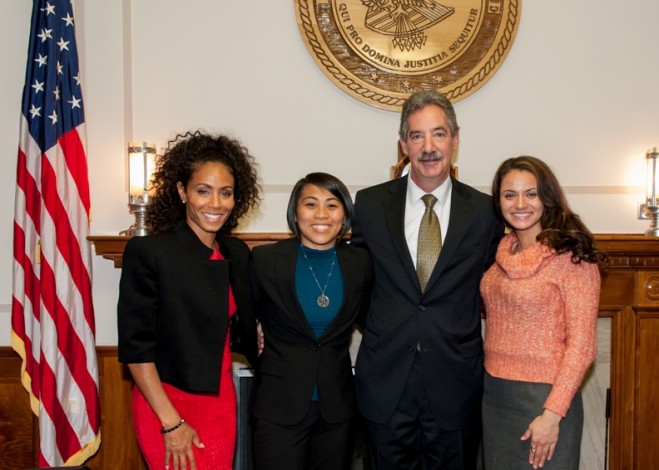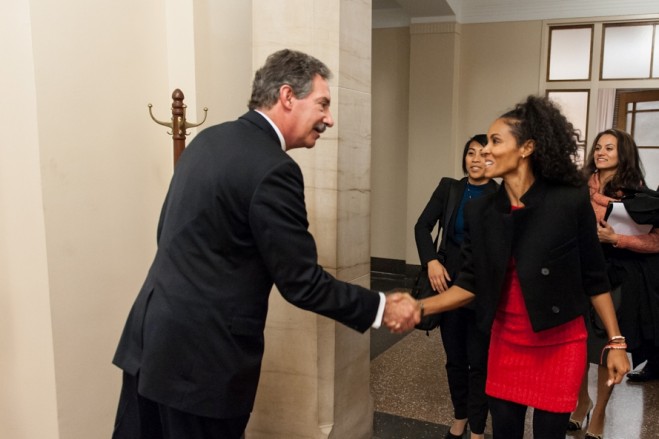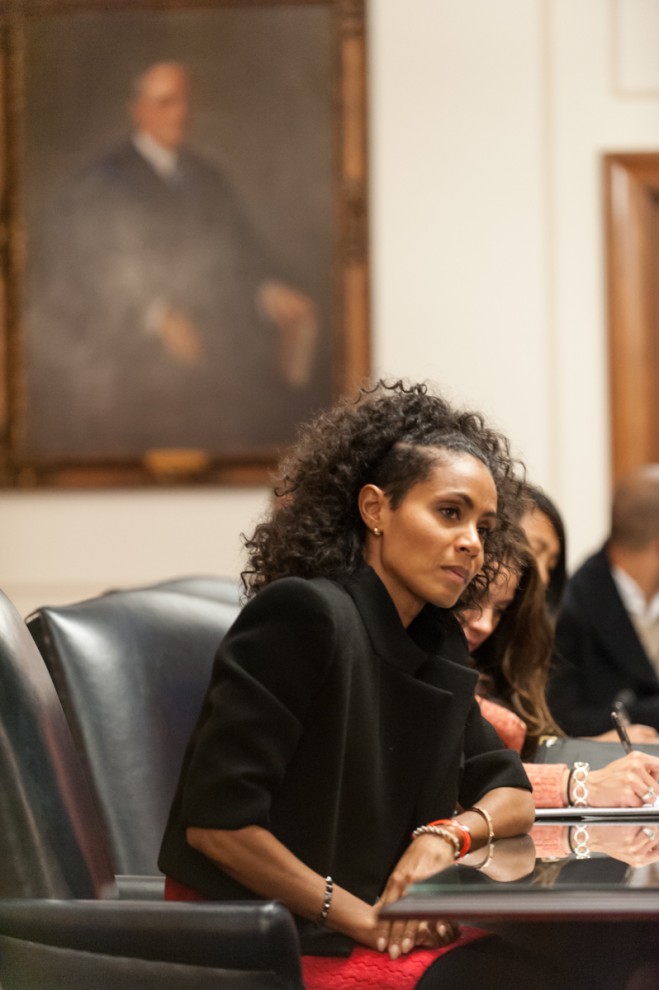
Actress and Advocate, Jada Pinkett Smith, Minh Dang, Deputy Attorney General James Cole and Withelma "T" Ortiz-Macey met to discuss human trafficking.
Deputy Attorney General James Cole met with Jada Pinkett Smith last week to discuss the department’s extensive efforts to end human trafficking. Ms. Pinkett Smith founded the organization, Don’t Sell Bodies, to raise awareness about this global epidemic and advocate for victims of trafficking. Ms. Pinkett Smith was joined by former trafficking victims who now work to raise awareness and eliminate human trafficking, including Minh Dang and Withelma “T” Ortiz-Macey, Glamour magazine’s 2011 Woman of the Year.
During the meeting the group discussed remarks made by Deputy Cole before the INTERPOL General Assembly in Italy earlier this month, which largely focused on the department’s myriad of efforts to combat trafficking, including the links between transnational organized crime and human trafficking and the department’s prosecution and training efforts in this area.

Deputy Attorney General Cole greets Jada Pinkett Smith and her colleagues who are advocating for an end to human trafficking.
Human trafficking cases are prosecuted by several Department of Justice components, including the Civil Rights Division and its specialized Human Trafficking Prosecution Unit, the Criminal Division through the Child Exploitation and Obscenity Section, and individual U.S. Attorney’s Offices. These cases are investigated by the Federal Bureau of Investigation, the Department of Homeland Security’s Immigration and Customs Enforcement/Homeland Security Investigations, and partners at the Departments of Labor and State.
In recent years we have demonstrated unprecedented success in fighting both labor and sex trafficking. We are bringing a record number of federal cases, while at the same time, more states than ever before have passed their own anti-trafficking laws. The department has increased the number of human trafficking prosecutions by more than 30 percent in forced labor and adult sex trafficking cases, while also increasing the number of convictions in Innocence Lost National Initiative cases by 30 percent.
Working with federal, state, local, and international law enforcement agencies, we recently secured the longest sentence ever imposed in a forced labor case. In United States v. Botsvynyuk, the lead defendant was sentenced to life in prison plus twenty years, and his co-conspirator was sentenced to twenty years, for their respective roles in an organized human trafficking scheme that held its victims in forced labor on cleaning crews in and around Philadelphia, Pennsylvania.
Just over a year ago, we initiated a pilot project of multi-agency Anti-Trafficking Coordination Teams (ACTeams) in six judicial districts in the United States. These task forces will prove the value of interagency coordination to address the scourge of human trafficking. In addition to the ACTeams, each U.S. Attorney now participates in some form of anti-trafficking task force.
In addition to our own federal prosecutions, the department’s grant making components are funding state and local law enforcement agencies and victim services organizations to support multidisciplinary, victim-centered task forces dedicated to investigating trafficking crimes and providing culturally-competent assistance to victims.
By taking a multi-disciplinary approach to combating human trafficking and working with our federal, state local and nonprofit partners we can ensure that victims obtain the services that they need and that offenders are prosecuted and sentenced to lengthy jail sentences.








